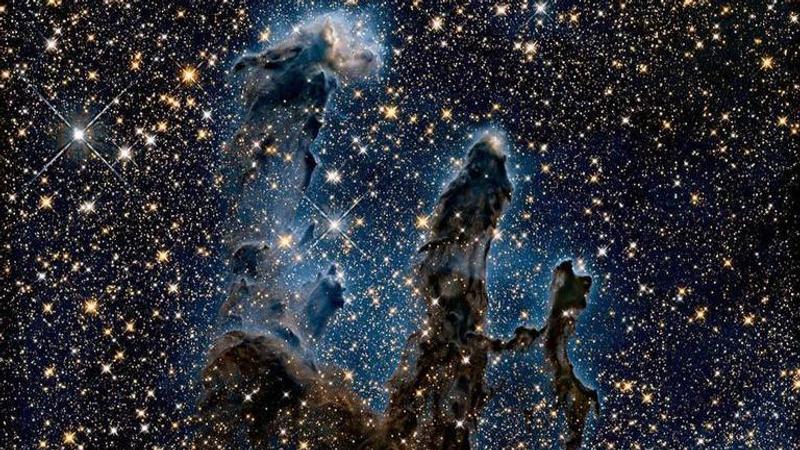Published 18:29 IST, April 7th 2020
NASA shares Hubble's most 'iconic' images of Eagle Nebula’s Pillars of Creation
National Aeronautics Space Agency (NASA) shared iconic pictures of one of its Hubble Space Station's most popular sights, the Eagle Nebula’s Pillars of Creation

National Aeronautics Space Agency (NASA) on April 7 shared the most iconic and popular images of one of its Hubble Space Station's most popular sights, the Eagle Nebula’s Pillars of Creation. NASA shared two pictures of the same sight, one in infrared light and the other in visible light. The pictures show the Eagle Nebula’s Pillars of Creation in two different views. NASA shared the beautiful pictures on Instagram 13 hours ago, that have now garnered over 1.6 million likes.
According to NASA's post, the infrared picture of the Eagle Nebula’s Pillars of Creation shows the pillars piercing through dust and gas to reveal a more unfamiliar view, which is impossible to see through naked human eyes. National Aeronautics Space Agency (NASA) in a statement said, "In this ethereal view the entire frame is peppered with bright stars and baby stars are revealed being formed within the pillars themselves. The ghostly outlines of the pillars seem much more delicate, and are silhouetted against an eerie blue haze."
Hubble Space Telescope
The image was captured through NASA's Hubble Space Telescope, which is the first major optical telescope to be placed in space. The Hubble telescope is placed above the distortion of the atmosphere, far above rain clouds and light pollution and has an unobstructed view of the universe. Scientists have used Hubble to observe the most distant stars and galaxies as well as the planets in our solar system. The Hubble has been in service since its deployment in April 1990 and it is considered the most significant advance in astronomy since Galileo's telescope.
(Image Credit: NASA, ESA/Hubble, and the Hubble Heritage Team)
Updated 18:29 IST, April 7th 2020




